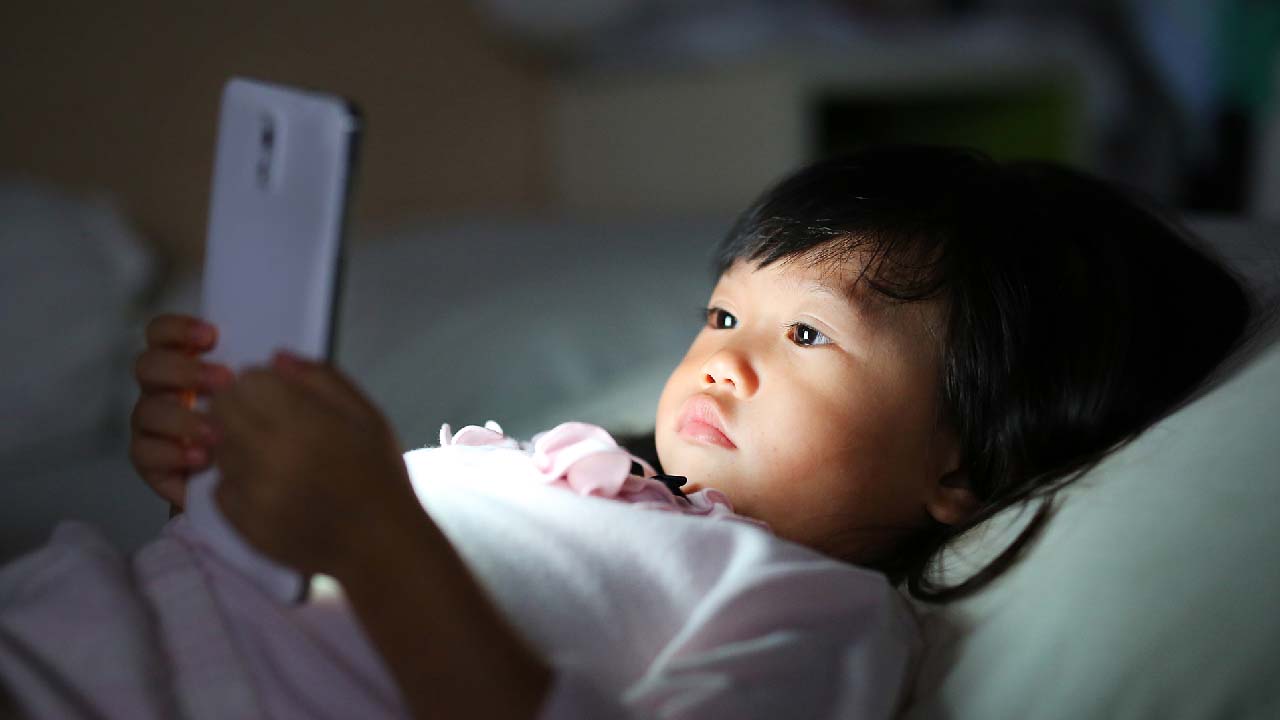Smartphones are used by children all over the world for a variety of purposes. Some children are seen talking to their friends for long periods of time, while others are seen playing endless phone games. The internet is an abode of knowledge for children. Though the utility of smartphones is undeniable, continued use and exposure can be harmful to children.
Children's Health Is Affected by Smartphones
Mobile phones can be a simple way to distract or occupy children. They do, however, have their own set of flaws. Some of the negative consequences of regular mobile phone use include:
- Tumours -We don't mean to scare you, but studies indicate that people who use cell phones excessively may be at a higher risk of developing tumors. Although there is limited evidence that cell phone radiation causes tumors, as a parent, you may want to limit your children's phone use to avoid any other potential risks.
- It Affects Brain Activity-Studies suggest that the human brain is sensitive to electromagnetic radiation. However, there is a need for more studies to prove that radiation could disturb brain activity. Since, mobile phones primarily function on electromagnetic waves for all forms of communication, even internal, and the brain has its own electric impulses wherein communication is carried out in the neural network, it could affect the brain. However, as mentioned earlier, more research needs to be done to prove that radiation affects brain activity. For now, what could affect the brain is the content the child is exposed to and the screen time.
- Academic Performance-Many children carry phones along with them to their schools. Chatting with friends or playing games during school breaks, or even in the class, is increasing day by day. This results in children failing to pay attention in class, missing out on important lessons, and consequently, being clueless about studies and examinations.
Therefore, parents must control or limit screen time and ensure children have access to only certain programs, games, etc. that are suitable for their age. Limited cellphone time won’t affect the child’s learning or focus on other important things/activities, too, such as studies, hobbies, sports, etc.
What are the advantages of taking a screen break?
Staring at a screen for long stretches without taking breaks can cause symptoms such as:​
- Eye fatigue-Muscles around the eye, like any others, can get tired from continued use. Concentrating on a screen for extended periods can cause concentration difficulties and headaches centered around the temple and eyes. Children may also use screen devices where lighting is less than ideal, causing fatigue from squinting.
- Blurry vision- Gazing at the same distance for an extended time can cause the eye's focusing system to spasm or temporarily "lock up." This condition, called an accommodation spasm, causes a child's vision to blur when he or she looks away from the screen. Some studies also suggest computer use and other close-up indoor activities may fuel rising rates of myopia (nearsightedness) among children, although this is not yet proven. More time playing outside may result in healthier vision development in children.
- Dry eyes- Studies show that people blink significantly less often when concentrating on a digital screen, which can leave eyes dry and irritated. Desktop and laptop computer use can be especially tough on children's eyes, because they're usually situated higher up in the visual field than a book, for example. As a result, the upper eyelids tend to be open wider—speeding up the evaporation of the eye's tear film.
Tips to Reduce the Risk of Using a Smart Phone
While children are growing up, it is critical to take the appropriate precautions to ensure their mobile phone safety.
- Cell phones should not be given to children under the age of 16 as a general rule. If necessary, you may communicate with teachers and school personnel to ensure your child's safety and well-being. Some parents may prefer something different, which is fine as long as the child has no or limited access to content that will divert his attention away from his studies.
- If you're concerned about radiation, have your child use a wired headset or limit the amount of time he talks on the phone instead of holding it to his ear. As previously stated, there is insufficient evidence to prove that cellphone radiation causes tumors, but if it relieves your anxiety, go ahead and do it.
- As an adult, parents and other people in the house need to restrict their use of phones when they are around children. This is not only for purpose of avoiding radiation, but to create a behavior pattern as well.
- Keep your mobile phones safely with you and out of sight of your kids at night. Children may quietly try to get a hold of it, without you finding out.
A mobile phone, like any other technology or tool, is a two-edged sword. The smartphone's technological powers is incredible, and it's also a great learning tool for kids. Keeping things in moderation and limiting usage hours, on the other hand, goes a long way toward ensuring children's well-being and instilling good behavioral habits.
(Disclaimer: The content on this site is for informational purposes only, and should not be taken as professional medical advice. Always seek the guidance of your doctor or other health professionals for any questions you may have regarding your health or a medical condition.)

 ​​​​​​​​Children are staring at digital screens, such as computers, tablets, televisions, smartphones, and other devices, for longer than ever before. All that screen time can harm a child's health, including the condition of their eyes.
​​​​​​​​Children are staring at digital screens, such as computers, tablets, televisions, smartphones, and other devices, for longer than ever before. All that screen time can harm a child's health, including the condition of their eyes.
















.jpeg)











.jpg)




